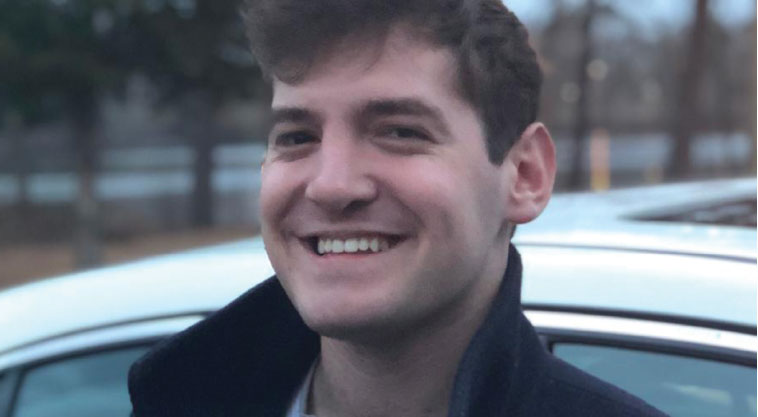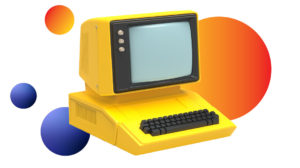Work / Life Solutions with Bunim Laskin


Who Bunim Laskin, founder and CEO at Swimply, the first online marketplace for swimming pool sharing (aka “The Airbnb for Pools”—MSNBC).
What Bunim’s idea is super simple: Provide a platform whereby the 10.6 million pool owners in the US can rent their pools to those looking to enjoy a private swim. With very few resources, his site has already generated thousands of transactions. And after his story went viral across media publications, startup fundraiser Shark Tank asked him to apply to pitch his idea to their investors!
Wait… did I mention that Bunim is only 21 years old?!
Where Born in Israel, the oldest of 12 children, Bunim and his family moved to Lakewood, NJ, in 2010. He attended Rabbi Zweig’s yeshivah in Miami for high school, and then learned in Bais Yisrael and Rabbi Barry Klein’s chaburah in Eretz Yisrael. His office is based in Brooklyn, yet he’s often found trotting across the US to grow the number of pools, partners, and customers on Swimply.
Why Bunim and I recently met at the TribeWorks conference, a one-day business accelerator organized by multiple Jewish organizations and hosted by Mishpacha. While I was blown away by his start-up’s story, I was even more impressed with his attitude toward life. He maintains a rigid daily learning schedule, has a company-wide Whatsapp group dedicated to Torah thoughts, and he’s incredibly humble. Read further to be inspired…
1 of 9 What opportunities or personalities played a key role in your career?
It may sound cliché, but my rosh yeshivah — Rabbi Yochanan Zweig — changed my outlook on everything in life. One crucial fundamental he instilled within me: Every person gets his own view of the world and the Torah, as if the Torah was created for him. Every individual may see, think, or create something that no one else before him could. Even I could come up with a chiddush that the Chasam Sofer didn’t or solve a problem that people far greater than me could not.
With Rabbi Zweig, thoughts have no rules, barriers, or filters — and no censorship. I was free to think what I wanted. Of course, that didn’t mean I was always right; if he thought I was wrong, he would let me know. But it did mean that he felt I was capable of brilliant insights (after all, brilliant insights are not exclusive to the brilliant) and of carrying out whatever I decided to do.
This, more than anything, gave me confidence and fearlessness to believe in myself and do what I felt was right, despite the lonely road of entrepreneurship and voices of discouragement.
In addition, my start-up Swimply would never have been possible without a man named Moshe Hirsch. When I was in yeshivah in Israel, I told his son, Arye, about my idea of a pool-sharing economy. Arye mentioned it to his father, an amazing Yid and successful businessman who was a creative producer at Warner Brothers and owned a software development company. Moshe called me and said: “We’re making this happen.” He then helped us build our MVP (minimum viable product) for very little cost. More importantly, though, we became close over the next few months, as we finalized the design of our platform. He was instrumental in guiding me through the slippery slopes of business, never failing to instill true Torah values of honesty and kindness throughout the process.
Because of him, even though I shifted to spending most of my time running a business, entrepreneurship didn’t take over my life. I remained a yeshivah bochur — at heart and in practice.
3 of 9 What do you do to relax, recharge, or simply have fun? How do you make time for that, and how often?
Baruch Hashem, I’ve got a great learning schedule going every day, a daily exercise routine, and after any particularly stressful meeting, I’ll pull out a guitar or grab a seat in front of the piano.
I don’t believe in sacrificing days — you only get every day once. Although I dedicate a big portion of my life as my hishtadlus to succeed, it’s not the reason I’m alive. Every day, you should do something you love, something that will help you grow. And it’s so important to make time to stay healthy.
7 of 9 If you were asked to deliver a TED Talk that would be watched by 50 million people, what topic would you choose to speak about? Why?
I would love to give a TED Talk someday about the dichotomy of being a religious businessman.
(Note: I will be generalizing like a man has never generalized before.)
In my short time in the business world, I’ve already been impressed with the unique respect and trust given to a Yid.
It’s ironic; in most other scenarios, Jews aren’t accorded the same deference. Yet the reason is simple: People know that we have a higher standard of ethics and morality than most. We have the Torah.
Being observant in the business world could seem to put you at a disadvantage — not working on Shabbos, being bound to halachah, etc. But in truth, the Torah allows us to excel in business. Because of the immense value we place on fairness, kindness, honesty, and helping others — corruption has a uphill battle with us.
Not to mention our secret weapon: bitachon. We know that playing by all our seemingly tedious rules appears to give others a lead, but it’s all fine because we have bitachon. We aren’t as stressed as others, because we have bitachon. When it comes to success at the price of our morality, we will always choose morality because we have bitachon.
Finally, we remember Who gave us success and Who can take it away, because everything we have is built on the foundation of bitachon.
In the best-selling book The (Honest) Truth about Dishonesty, author Dan Ariely sets the premise that we are all dishonest. We lie every day, both to others and to ourselves. To prove his thesis, he conducted a bunch of experiments at Yale and Harvard to show how dishonest we are — and how to remedy that.
For instance, he gave students a paper with riddles, offering 50 cents for every answer they got right. One group had no opportunity to cheat; they had to hand in the quiz to a curator who checked the answers and paid them accordingly. On average, they solved four puzzles.
Another group had the opportunity to cheat. After completing the quiz, they shredded their tests in the back of the classroom and simply reported their score. There was no way to check if they were lying. On average, they solved six puzzles.
Ariely proceeded to test ways to halt cheating: lowering the reward, asking students to take an oath — no luck. Finally, before the quiz began, he asked students to recall as many of the Ten Commandments as they could. In this case, even the declared atheists in the room did not cheat!
Ariely’s conclusion? The simple reminder of G-dly morality does more to curtail dishonesty then any consequence or reward. As Yidden, we’re lucky; these moral reminders are built in — yarmulke, tzitzis, learning — naturally keeping us on the right path.
8 of 9 Can you share a time when you had to navigate the tension between your deepest values and the business world?
Once you step into the business world, you’re always navigating this tension. But I’ll share one story: Right before Pesach this year, Shark Tank reached out to us to apply to be one of the budding entrepreneurs to pitch their business ideas to titans of industry at a start-up fundraising event. We had only until the last day of Chol Hamoed to send in an application, with a video, to be considered. At the time, I was on my way to Croatia for Pesach, my CTO was in Miami, and the logistics were proving to be a bit difficult, especially the video. But we hustled, sent a fun and creative video, and were accepted to the next round.
After about four rounds of interviews, we were in! We met with Zoli Honig and Isaac Deutsch, two frum entrepreneurs who also did Shark Tank, to get the scoop on the process. We were totally pumped… until we received Shark Tank’s available dates: the second day of Rosh Hashanah, Shabbos of Aseres Yemei Teshuvah, and, you guessed it — Yom Kippur!
It was a real disappointment. But the “coincidence” was clearly from Hashem, and of course, we have no regrets. It was one of those moments that — although baruch Hashem I believe I have my priorities straight — really highlighted what I truly stand for.
Shark Tank did say we have a great chance for next year… so stay tuned!
9 of 9 If you were advising a young man/woman hoping to launch a career as an entrepreneur, which “dos” and “don’ts” would you share?
Don’t learn about everything that lies ahead; it will send you running for the hills and you’ll never start the journey. Learn only what you need to get the next step done flawlessly, and focus all your effort on that step. You only need to see as far as your headlights, and once you’re there, get onto the next step… and so on.
If I would have known all that was up ahead for me when I decided to start Swimply, I doubt I would’ve started. Ignorance is bliss when it comes to beginning the journey as an entrepreneur.
It’s just like an older chavrusa told me in ninth grade, when I wanted to finish Bava Basra, the longest masechta in Shas: “Don’t turn the pages you haven’t yet learned to see how much you have left, because you’ll quit the first time you get frustrated!”
Thankfully, we made a great siyum together!
Originally featured in Mishpacha, Issue 744. Moe runs business development for Hometalk, where he spearheaded influencer partnerships that generated 700 million video views. He holds an MBA and semichah, and published his first book, The Gift of Stuttering (Mosaica Press, 2016). He also teaches a daf yomi shiur, produces inspirational videos for Aish.com, and gives lectures to audiences worldwide. Moe lives in Ramat Beit Shemesh with his wife and children.
Oops! We could not locate your form.







